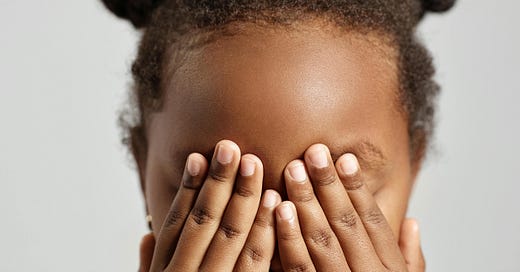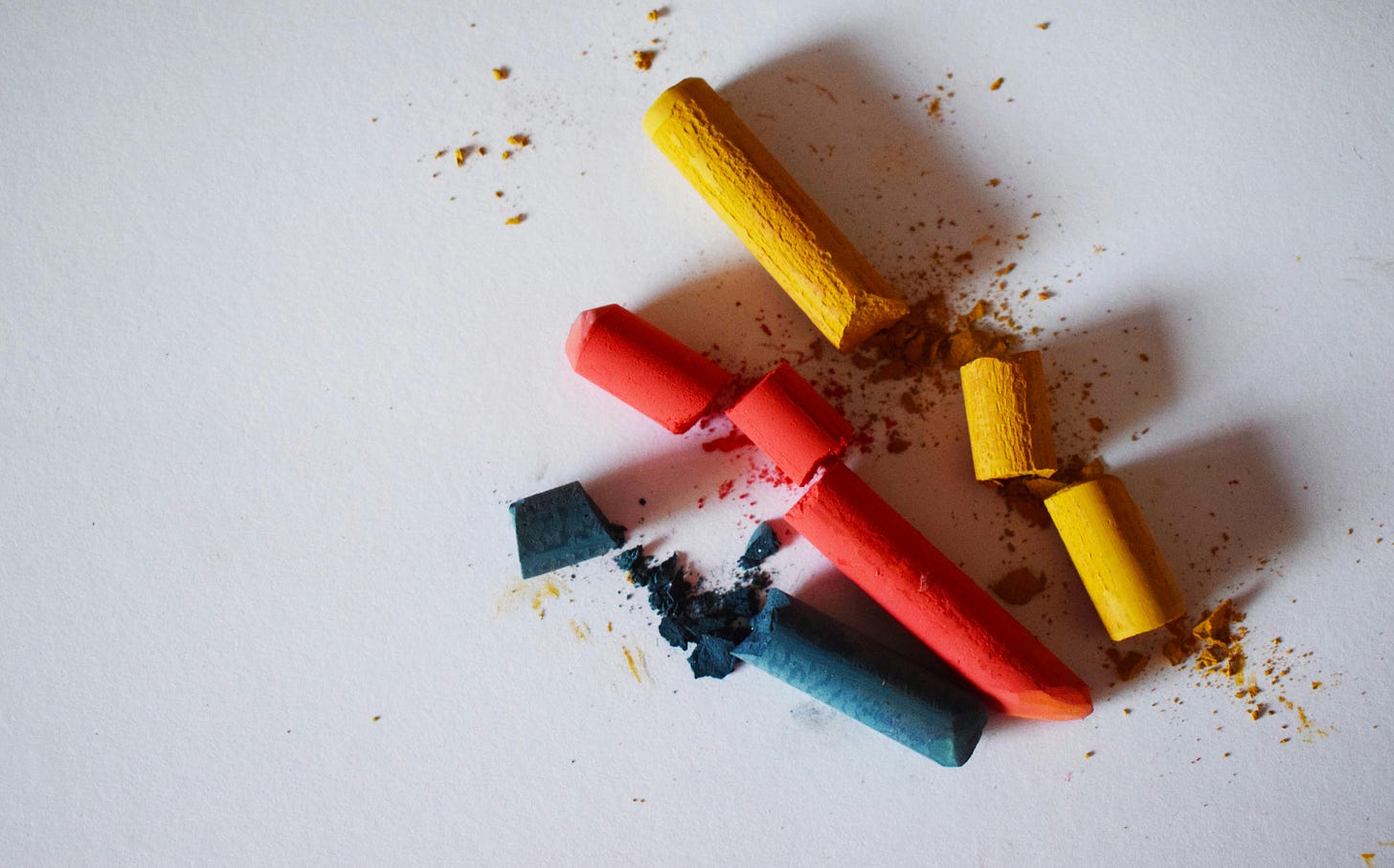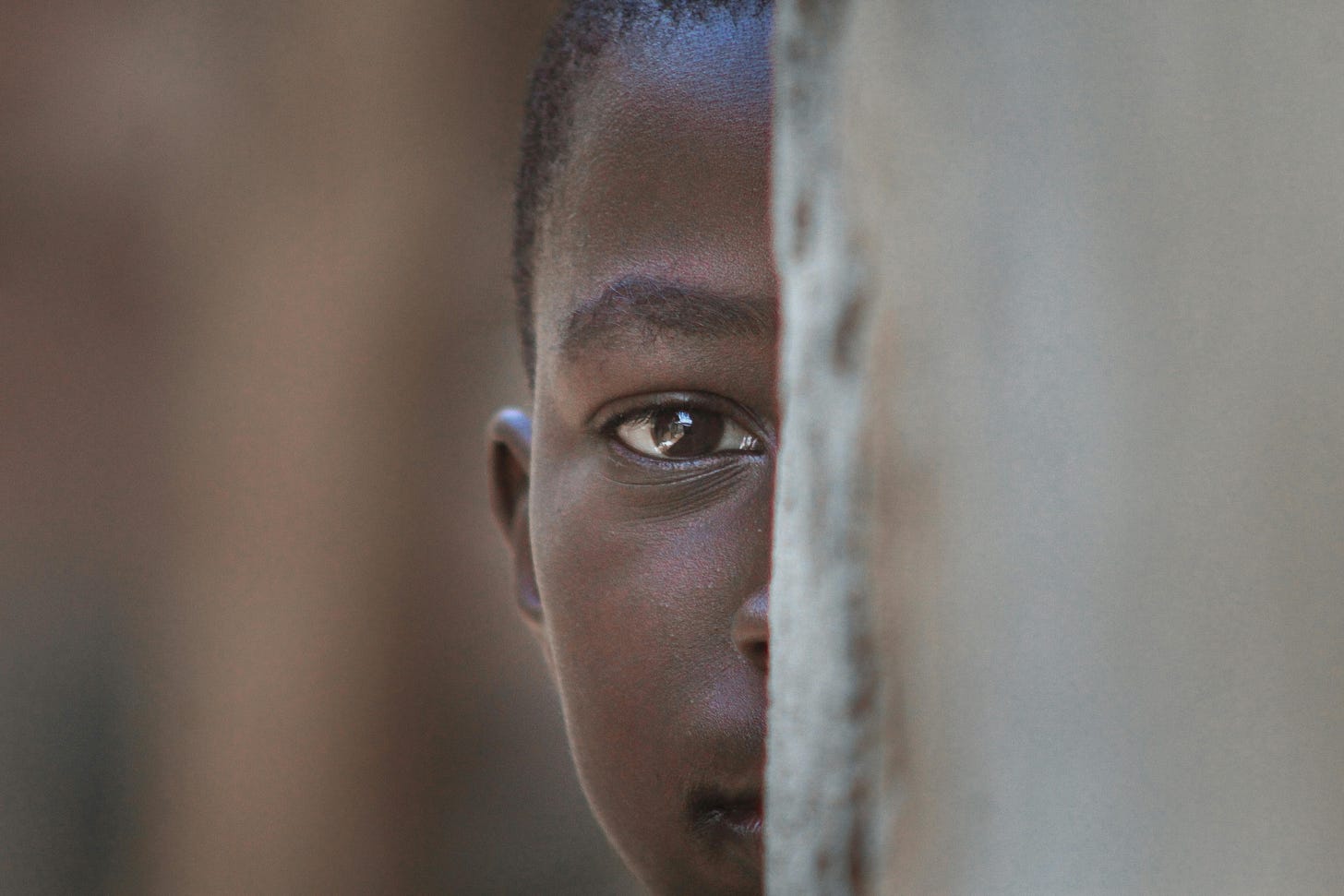“Stop crying before I give you something to cry for.”
If you're from the Caribbean, chances are this phrase was a staple in your childhood. Whether you heard it from a parent, an auntie, or even a teacher, this phrase was meant to instill obedience while being disciplined. But for many of us, it also planted something else: a quiet message that emotions (especially the big, uncomfortable ones) are dangerous, shameful, or simply don’t matter.
Are you serious about your healing journey? Then let’s wake it up and talk about emotional awareness, and why it’s one of the most radical things we can reclaim as adults, especially for my Caribbean natives and those a part of the Caribbean diaspora.
We Were Taught to Suppress, Not to Feel
Our Caribbean culture, for all its vibrance and energy, also has a deeply rooted discomfort with vulnerability. Emotional control and "pushing through" are prized. “Tough love” often looks like silence, shouting, or public shaming. In many households, particularly where authoritarian parenting is common, emotional expression is not welcomed, it’s punished.
A 2012 study by Lipps and colleagues found that while parenting styles vary across the region, authoritarian and neglectful styles remain prominent in many homes, especially in Jamaica and St. Vincent. These styles are marked by low warmth and high control, or in simpler terms, lots of discipline, very little nurturance. What the study found is striking: adolescents raised in these environments had significantly higher symptoms of depression.
So when we say “don’t cry,” “you too sensitive,” or "I don't know why I'm feeling like this," we’re not just silencing emotions, we're also echoing those moments when we were told to toughen up, stop crying, or hide what we really felt, and in doing so, we invalidate the very cues our minds and bodies use to tell us “Something’s not right.”
Shame Is the Shadow of Suppression
Many of us grew up learning that certain emotions were “bad.”
Anger was disrespect.
Sadness was weakness.
Jealousy was evil.
So what did we do? We swallowed them. We masked them. But unacknowledged emotions don’t disappear, they morph into other things: chronic stress, anxiety, burnout, even physical illness.
In therapy, I’ve seen time and again how shame around emotions becomes internalized. A client might say, “I feel stupid for crying,” or “I don’t even know why I’m upset, I just need to get over it.” And behind those words is often a history of being told, explicitly or implicitly, that their feelings were wrong.
When We Don’t Listen to Our Emotions, We Lose Ourselves
Emotions are messengers.
They tell us when something feels off, when a boundary is being crossed, or when we’re longing for something deeper.
But if we’ve been trained to ignore or dismiss them, we end up living out of sync with ourselves. We:
Stay in jobs or relationships that drain us.
Overextend ourselves in the name of “being strong.”
Chase happiness but neglect to process grief, anger, or fear.
And ironically, in our attempt to feel only “positive emotions,” joy and happiness begin to feel hollow, we end up feeling empty, numb or overwhelmed by the very emotions we’ve ignored that are bubbling under the surface.
Emotional Awareness: The First Step Toward Healing
In therapy, one of the first things we work on is building emotional awareness.
What are you feeling?
Where do you feel it in your body?
What might be triggering it?
What need might that emotion be pointing to?
This process isn’t just clinical, it’s deeply spiritual and self-affirming.
When we name our feelings and honor them, we are essentially saying to ourselves:
“You make sense. You matter. You are not too much. Your emotions are valid.”
That’s where healing begins. That’s how we break the cycle of emotional suppression passed down through generations.
Let’s Normalize Feeling
This isn’t about blaming our parents or making them out to be the "bad guys". Many of them were doing the best they could with what they knew, often passing down emotional survival strategies that helped them endure their own hardships. But what helped them survive doesn't always help us thrive, and recognizing that allows us to hold compassion while still choosing a different path. As the Lipps et al. study notes, many Caribbean parents used the tools they had, shaped by their own upbringing, economic pressures, and cultural values. But now we have new tools. We can do things differently. So I invite you to pause and ask yourself:
What emotions did I learn to suppress growing up?
How do I respond to discomfort in myself, and in others?
What would it look like to validate my feelings instead of pushing them away?
A Final Word
Emotional awareness isn’t soft. It’s strength. What would it look like if more of us, Caribbean men, women, and children, felt safe enough to say, 'I’m hurt,' 'I’m scared,' or even just 'I don’t know'? What might shift in our relationships, our parenting, and our communities if we honored those emotions instead of hiding them?
It’s not indulgence. It’s insight.
And for Caribbean people especially, it is revolutionary.
Because when we reclaim our emotions, we reclaim ourselves.
Written by a Caribbean psychologist passionate about emotional healing.
If this resonates, drop a comment or share with someone who's unlearning emotional silence too.









